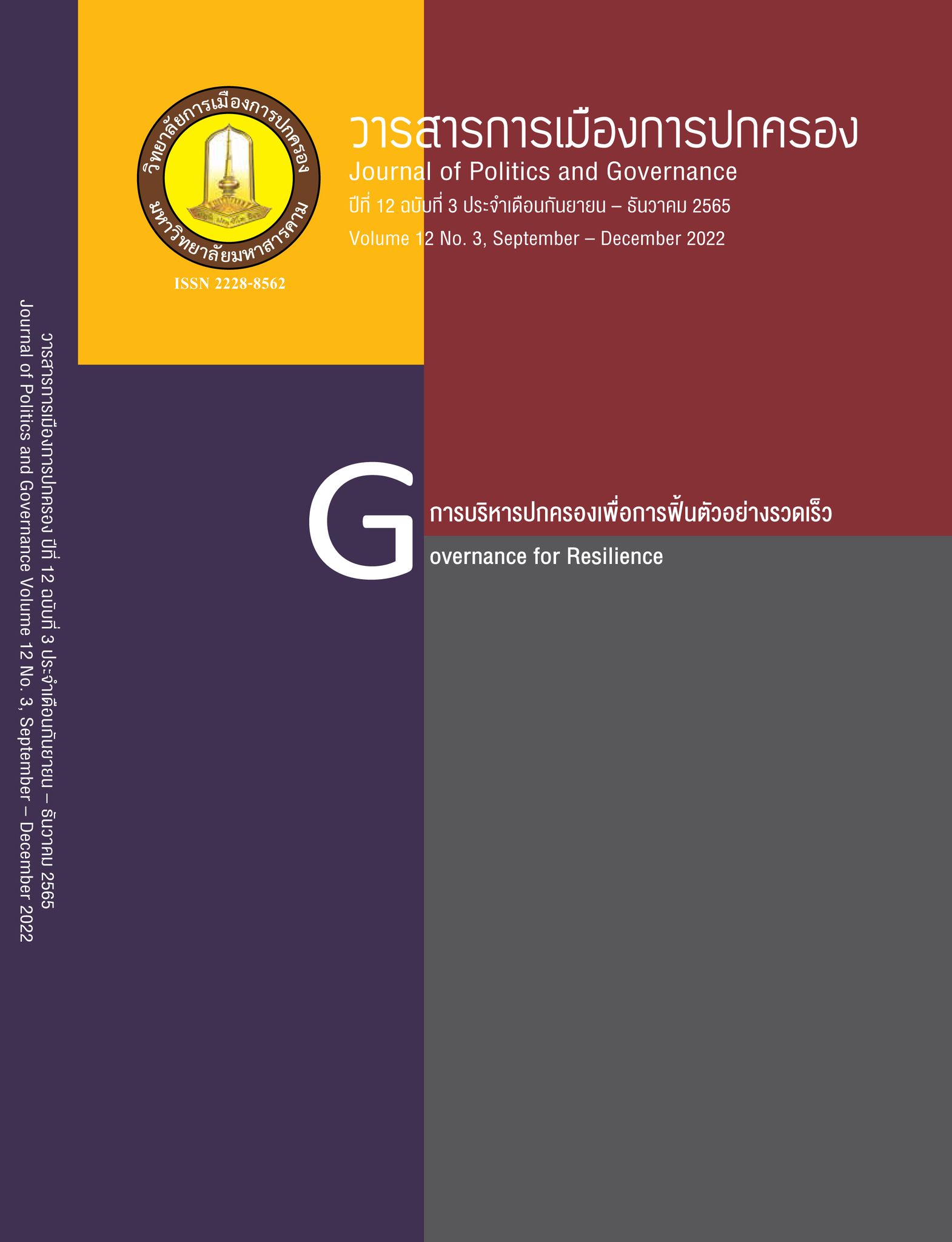The ความเป็นไปได้ของการประยุกต์ใช้ระบบปัญญาประดิษฐ์ สำหรับพนักงานสอบสวน เพื่อวิเคราะห์ระบบพิจารณาชั้นต้นภายใต้กระบวนการยุติธรรมในประเทศไทย
Main Article Content
บทคัดย่อ
การวิจัยนี้มีวัตถุประสงค์ของการวิจัย เพื่อศึกษาความเป็นไปได้ของการประยุกต์ ใช้ระบบปัญญาประดิษฐ์ (AI) สำหรับพนักงานสอบสวนเพื่อวิเคราะห์ระบบพิจารณาชั้นต้นภายใต้กระบวนการยุติธรรมในประเทศไทย ใช้วิธีการวิจัยเชิงคุณภาพ การเก็บรวบรวมข้อมูลทุติยภูมิ จากแหล่งวิชาการในเรื่องที่เกี่ยวข้องและข้อมูลปฐมภูมิ โดยใช้แบบสัมภาษณ์กึ่งมีโครงสร้างและ การจัดการสนทนากลุ่มย่อยจากผู้เชี่ยวชาญและผู้ที่มีส่วนเกี่ยวข้อง โดยใช้วิธีการวิเคราะห์เนื้อหา ผลการวิจัย 1) มีความเป็นไปได้ในการพัฒนาระบบปัญญาประดิษฐ์ โดยต้องอาศัยความร่วมมือ และการมีส่วนร่วมของพนักงานสอบสวน ผู้เชี่ยวชาญและผู้บังคับบัญชาในการตรวจสอบ และเชื่อมโยงข้อมูลเพื่อนำสู่การสร้างฐานข้อมูลกลางของสำนักงานตำรวจแห่งชาติ โดยระบบปัญญาประดิษฐ์ที่มีความยืดหยุ่นสำหรับการตัดสินใจอาจจะช่วยสนับสนุนและส่งเสริมระดับความสม่ำเสมอและประสิทธิภาพในการพิจารณาคดี หากมีการพัฒนาและประยุกต์ใช้ AI อาจจะช่วยปรับความยืดหยุ่นความแม่นยำและประสิทธิภาพในการร่างเอกสารการพิจารณา คดีต่าง ๆ และ2) การรับรู้ในพัฒนาระบบปัญญาประดิษฐ์ เป็นปัจจัยหนึ่งในการส่งเสริม การปฏิบัติงานและมีผลต่อพฤติกรรมบุคลากรและการพัฒนาระบบในการสนับสนุนพนักงานสอบสวนในการปฏิบัติงาน โดยความเหมาะสม ความจำเป็น และแนวทางในการพัฒนา ระบบปัญญาประดิษฐ์ สำหรับพนักงานสอบสวนเพื่อวิเคราะห์ระบบพิจารณาชั้นต้นภายใต้กระบวนการยุติธรรมในประเทศไทย กระบวนการพัฒนาต้องมีองค์ประกอบด้านความรู้ ความเข้าใจ ความเชี่ยวชาญ และการมีส่วนร่วมของกลุ่มผู้มีส่วนได้ส่วนเสียทุกกลุ่มที่มุ่งเน้นพัฒนา ระบบฐานข้อมูลกลางของสำนักงานตำรวจแห่งชาติเพื่อจะนำมาสู่การพัฒนาระบบฐานข้อมูล ขนาดใหญ่ (Big data) สำหรับพนักงานสอบสวนอย่างเป็นระบบและขั้นตอน
Article Details
เอกสารอ้างอิง
นิศา ชูโต. (2548.) การวิจัยเชิงคุณภาพ Qualitative research. กรุงเทพฯ: พริ้นต์โพร.
Deobold B. V. Dalen & William. J. M. (1962). Understanding Educational Research. New York: McGraw-Hill, 163-173.
James, O., & Leon, S. (1999). JUSTICE: A Judicial Search Tool Using Intelligent Concept Extraction. Proceedings of the 7th international conference on Artificial intelligence and law. June 1999, 173-181.
Kouziokas, G. N., and Perakis, K. (2017). Decision support system based on artificial intelligence, GIS and remote sensing for sustainable public and judicial management. European Journal of Sustainable Development, 6(3), 397-404.
Manager Online. (16 พฤศจิกายน 2560). ศาลจีนใช้หุ่นปัญญาประดิษฐ์ช่วยงานอำนวยยุติธรรม. ผู้จัดการออนไลน์. สืบค้นจาก https://mgronline.com/china /detail/9600000115921.
Nattaphan, S. (2 กรกฎาคม 2562). ล้ำไปอีก! จีนเปิดตัวผู้พิพากษาปัญญาประดิษฐ์เป็นครั้งแรกของโลก. สืบค้นจาก https://www.beartai.com/news/ itnews/339985.
Richard, M. R., and Alicia, S. N,. (2019). Developing Artificially Intelligent Justice. Stanford Technology Law Review, 22, 242-289.
Sartor, G., and Branting, L. K. (1998). Introduction: judicial applications of artificial intelligence. Artificial Intelligence and Law, 6, 105-110.
Tania, S,. (2018). Judge v. Robot: Artificial Intelligence and Judicial Decision-Making. UNSWLJ, 41, 1114-1133
Thomas, J.B,. (2018). Artificial Intelligence in Court Legitimacy Problems of AI Assistance in the Judiciary. Retskraft–Copenhagen Journal of Legal Studies, 2(1), 41-59.
Yin, R. K. (2011). Qualitative Research from Start to Finish. The Guilford Press, New York, 87-88.


